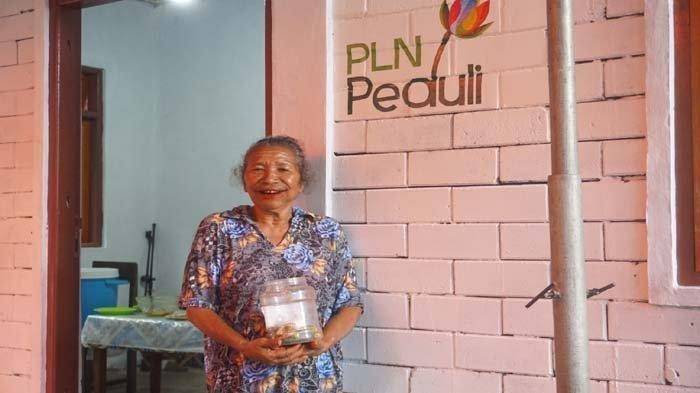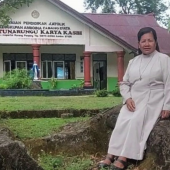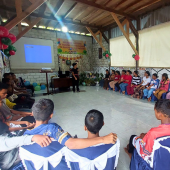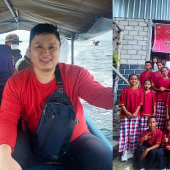Indonesian prelate opens coal waste housing program for poor

Archbishop Vincentius Sensi Potokota of Ende inaugurated a house made from waste coal at Santo Donatus Bhoanawa Parish, Ende Regency, East Nusa Tenggara Province (NTT) on February 5.
This housing program is a result of the collaboration between the Archdiocese of Ende with the State Electricity Company (PLN) in NTT and the government of Ende Regency.
"This housing program is concrete evidence of mutual concern, care for each other following the culture of caring for and loving each other," said Archbishop Potokota.
"Hopefully, this good effort that has been carried out will continue and become a moral example for others," he continued.
The prelate also thanked the State Electricity Company (PLN) for helping the underprivileged residents of the Archdiocese of Ende.
The assistance was provided through the use of Fly Ash Bottom Ash (FABA) products or leftover materials from the Steam Power Plant to build houses for underprivileged families in Ende.
"As a bishop, I sincerely thank the PLN staff who has given their hearts to people in need through the innovative use of FABA," said Potokota.
According to him, the use of FABA products for the construction of houses to help economically disadvantaged residents and was a form of PLN's concern for humanity.
The General Manager of PLN for the NTT Region Agustinus Jatmiko said that apart from providing electrical energy, PLN also aids underprivileged residents and encourages the growth of the community's economic business through the use of FABA.
Currently, FABA production has been used for the construction of public facilities, such as places of worship, roads, and renovation of simple, healthy houses for the poor.
Jatmiko said that five residents' houses had been renovated in Ende, particularly in Bhoanawa.
Previously, a survey and verification had been carried out to ensure that the target was really for the people who needed it.
"Through the use of FABA for development," said Jatmiko, "infrastructure limitations in remote or underdeveloped areas can be addressed at a lower cost and higher volume.”
He also hopes that the use of FABA will be supported by many parties so that the presence of FABA will be more widely felt by the community.
Yosefina Uma is one of the beneficiaries of house renovation assistance from Santo Donatus Bhoanawa Parish. Yosefina felt that the blessings she had received were multiplied by this assistance.
"In the past, my house had bamboo walls, with holes. I lived here alone. Then it was demolished and then they built a new one for me, so now I can live in this beautiful house," said a 73-year-old widow happily.
Yosefina admitted that she could not afford to build a new house, because she did not have enough money. To fulfill her daily needs, Yosefina does farming and expects attention from her children.
Radio Veritas Asia (RVA), a media platform of the Catholic Church, aims to share Christ. RVA started in 1969 as a continental Catholic radio station to serve Asian countries in their respective local language, thus earning the tag “the Voice of Asian Christianity.” Responding to the emerging context, RVA embraced media platforms to connect with the global Asian audience via its 21 language websites and various social media platforms.














